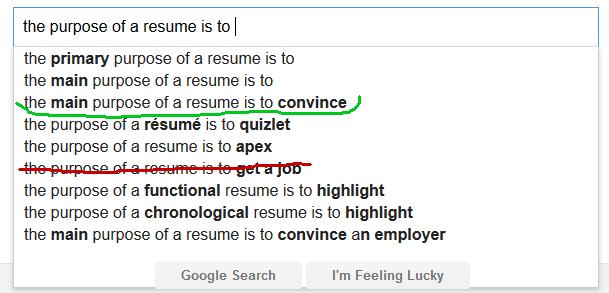Context-Driven Resume: Heuristics
Preface
Since the beginning of Toronto Testing Meetup, I’ve often been asked for help in job search. I organized and streamlined it into a re-occurring project: Job Finding Club. I’ve done it both as a brief advisory and as dedicated events.
Per my observations, the most common, as well as the most misunderstood and the most overrated aspect is resume. Writing about resume myths deserves a piece of its own. My particular, not anticipated challenge was that one needs to be set free of those myths in order to be able to create a good resume.

The Approach
The approach I found working well is explaining the purpose and “mechanics” of the process elements in resume writing – and, more importantly, the way resume is reviewed. That is, learning about the context!
By now, I’ve got a collection of written pieces and ideas that I’m happy to share with the broader community. I’m also interested in any feedback or counter-examples from your experiences.
Reminder: take everything as heuristics.
—
First of all, my..
Resume Heuristics
As a contractor with 10+ years of experience being constantly in job search on highly competitive Toronto market I came to the following.
- The main purpose of the resume is to bring back at least 50% positive response rate (i.e. invitation for an interview). Assuming the positions were real, the match was realistic, the applications were direct, and cover letters were also in a good standing.
- There are factors I can control, factors I can influence, out-of-my-control factors, and even completely random ones. Thus 100% might be achievable only in very specific contexts and circumstances, and I don’t put my bet on those.
- I’m satisfied with 50% but you may want to consider your own rate and put more effort into the resume development.
- If #1 condition is fulfilled the resume is good enough. Otherwise, I need to keep improving my resume AND my skills and experiences.
- It’s important to realize that the resume is not a standalone piece of writing. It is a reflection of one’s skills and experiences BUT it also might be used as a legal document. Employers have a legal right to fire anyone for misrepresentations in their resume, regardless of how long ago the hiring happened. Other kinds of cheating also might have unpleasant consequences.
- Improvement of resume is not merely improvement of formatting or insertion of required skills and experiences. It might take 2 weeks to add “Intermediate XML / XPath” line because that’s how long it might take to complete a practical course in XML.
- There is no single best resume format. Job seekers must work out their individual “good enough” format based on the current job market, their skills and experiences, work history, and anything that might be of value for the prospective employer. In testing, those might be..
- Skills in learning, writing, presentation, mind-mapping,..
- Experiences participating in open source and crowd sourced testing projects
- Engagements in professional community, like attending conferences and meetups
Oh, almost forgot the “disregard” heuristic –
![]()
- Reputation is a context-sensitive attribute. It might be the reputation you’ve earned with someone who had hired you before – or a recommendation from that person. But outside that circle you might be completely indistinguishable.
- Reputation is not something gained once and forever. It can build up but it also deteriorates.
- I observed people with very poorly written resumes being hired for their reputation and people with flawless resumes being rejected due to the lack of it.
- Recruiters might be less concerned with the professional reputation simply because they’re NOT the part of the same professional community. It’s Okay. Strong reputation gives a freedom to pass on the disrespectful contacts.
—
Interlude: On Reputation
Building one’s professional reputation is a huge theme on its own.
Let me suggest these two inspiring talks given by James Bach.
—
(Stay tuned. To be continued..)


